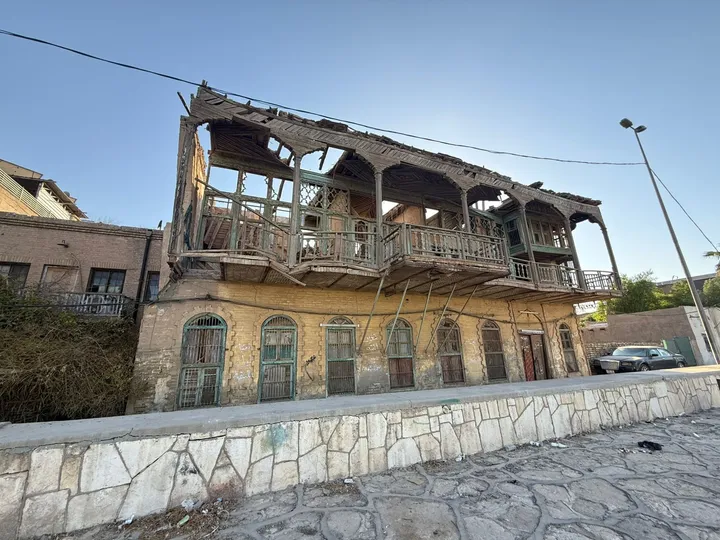I believe many of us remember the verses of poet Refaat Alareer, who was ruthlessly killed by the Israeli army last December.
"If I must die / you must live / to tell my story… If I must die / let it bring hope / let it be a tale".
These very lines have brought "hope" and have been a "tale" for the Palestinian people even after Refaat's death, which he predicted through his verses.
Throughout his 44 years of life, Refaat sought to emphasise the importance of storytelling as a tool of resistance. Up until he was killed by an Israeli air strike on December 7, he strived to inspire future generations to carry on the struggle for justice and liberation through the power of words.
But what makes storytelling so crucial for Palestinian resistance?
Through stories, we transmit knowledge, wisdom, and emotion, preserving cultural heritage and fostering empathy within communities.
Through stories, we learn the true face of history.
In essence, storytelling is a testament to the enduring power of narrative, shaping our understanding of the world and our shared humanity.
Since the Nakba in 1948, storytelling has been holding immense significance, serving as a didactic tool, a form of political critique, and a cornerstone for communal identity in Palestine.
This rich performance tradition offers a tangible connection to the Palestinian community, particularly amidst the challenges of life under occupation, laying the groundwork for resilience and resistance.
Because narratives have the ability to unite people in solidarity against oppression.
A night for Palestine in Istanbul
A couple of months ago, a group of Turkish storytellers organised a night where they narrated Palestinian stories in support of the resistance in Gaza.
Through the art of storytelling, they brought to life the voices of resilient people, emphasising the cultural richness and beauty of Palestine that is often overshadowed by the ongoing genocide.
"Let's not only remember Palestine for its struggles," one storyteller emphasised, "it's essential to cherish the culture and beautiful tales of Palestine".
Aiming to bring university students and disadvantaged children together through storytelling, the "Flying Carpet Residents" team first came together with a project supported by the Türkiye's Ministry of Youth and Sports.
"After the project, as friends who share a passion for storytelling, we realised that experiencing the same events – celebrating, grieving, getting excited, and laughing together – just as depicted in stories, strengthens the fundamental bonds that unite people," said the group.
"For us, storytelling became a chosen path for coming together and creating and for bringing people together. The energy we create in our narratives, the sincere atmosphere, the connection we establish with our audience, and the satisfaction of producing something beautiful has always been rewarding," said the storytellers.
After sparking considerable interest and demand from adults during their storytelling journey with children, they extended their storytelling sessions to include adults. Telling stories on June 21, the longest day of the year, and December 21, the longest night of the year, has become a cherished tradition for them.
Folktales of Palestine
Every year, the group selects a new theme and tells stories based on that theme. This year, they told Palestinian stories to be in solidarity with Palestinians in Gaza who have been subjected to Israel's deadly offensive that has killed nearly 28,000 people.
And after listening to a few stories, I can say that there is a common theme observed in Palestinian stories: the strongness of their beliefs.
"While exploring the folktales told in Palestine, we noticed something profound – the beliefs of the people there are truly on vastly different dimensions than ours," said the storytellers.
The main themes of their stories align closely with Islamic values, including the significance of reciting the basmalah, gratitude, treating parents and relatives well, love and respect, tolerance, and courtesy.
"This is truly something we haven't encountered in other folk tales. From my perspective, witnessing how their Islamic beliefs seamlessly integrate into their lives has significantly heightened my respect for their culture," they added.
Palestinian people have been enduring severe persecution and torment not only since October 7th, but the Nakba in 1948. Over such a prolonged period, tragically, they have grown accustomed to suffering, becoming a society that faces all trials with remarkable composure – only because they were not given another chance.
Understanding their resilience and strength from an outsider's perspective seems impossible. However, we can observe one thing: they are deeply rooted in their faith, able to rise from the depths of despair, every time declaring, "We have our Allah, alhamdulillah."
"They (Muslim Palestinians) have infused their beliefs intricately into every aspect of their lives. Even at the beginning of their tales, there is a tradition to first invoke the name of the Almighty, expressing a deep reverence that resonates throughout the narratives," the storytellers said.
It's fascinating to observe how, despite enduring unimaginable suffering – including the death of family and loved ones and the destruction of homes, workplaces, and hospitals – the people of Gaza still hold onto their faith.
Since Israel's war on Gaza started, on social media platforms, particularly on TikTok, one can very likely encounter people expressing their interest in the Quran and consequently converting to Islam after they witness the resilience, faith, and moral strength of Muslim Palestinians.
Witnessing the resistance and hope of the people of Gaza is undeniably inspiring for the rest of the world.
"And those killed by the Israeli forces are the very pillars of Palestine's civilisation: the poets, songwriters, artists, journalists, and more. This constitutes a meticulously planned and systematic cultural assault, too."
"Tonight holds immense significance as we gather, collectively believing in the eventual establishment of a free Palestinian state. While there is no doubt about this outcome, the question remains: how deeply can we forge connections with them? Preserving their cultural heritage is paramount, and that's why narrating their tales is crucial," they said.
























